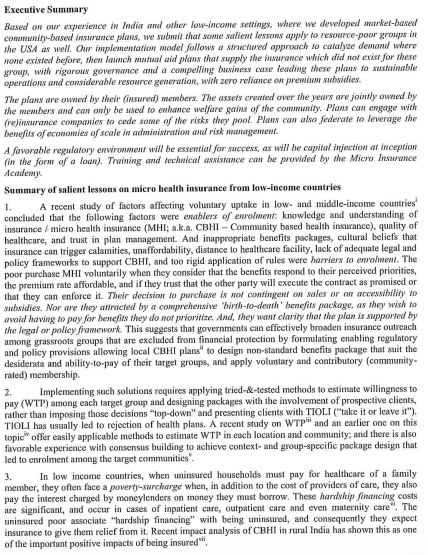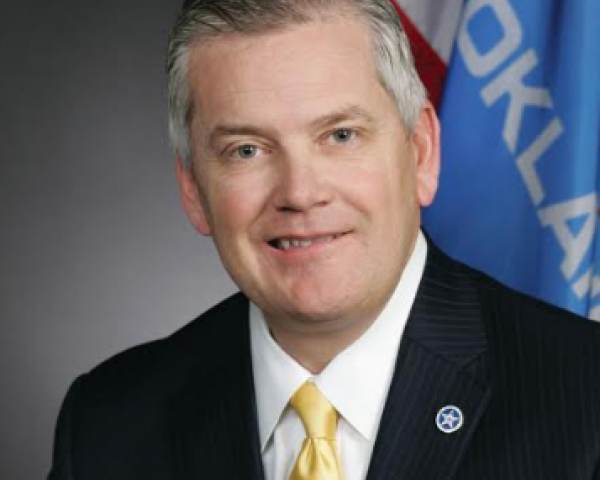Dear Majority Leader McCarthy,
I offer the following comments and recommendations in response to your letter dated Dec. 2, 2016, as the House of Representatives moves forward with the repeal of the Affordable Care Act and offers meaningful healthcare policy suggestions that place the best interests of the consumer and the market ahead of continued government marketplace meddling.
As the Oklahoma Insurance Department surveys the private individual health insurance market in Oklahoma, it is apparent that consumers, insurers and providers are in a combined state of distress. We see the expected marketplace failings, because of government intervention, of limited competition and consumer choice in both benefit plans and provider networks that have led to ever-increasing premium costs. Consumer confusion and dissatisfaction is prevalent and is shared by other marketplace stakeholders.
It is time we start thinking differently and move toward more innovative solutions that are working in other countries. We don’t know what health insurance is going to look like in 10, 15 or 30 years. We have to start putting the processes in place at the state level to allow for real innovation in this sector, one that has been totally hampered by government intervention for decades. To that end, one thing that has recently come to our attention that we think would be of interest to everyone is contained in the attached memo [at the bottom of this article] from Dr. David M. Dror, chairman of the Micro Insurance Academy and executive chairman at Social Re Consulting (pvt) Ltd. The memo focuses specifically on “health insurance to the uninsured and lessons from delivering microinsurance in low-income settings in India, Asia and Africa.” This memo
is an example of innovative thinking that we need to consider for certain microsegments of the population in the U.S. We need to look for new solutions similar to microinsurance that have yet to be considered in the U.S. but that are working in other countries.
The current landscape presents us with a real opportunity to examine the principles on which we want to base our health insurance markets. For far too long, health insurance has drifted away from traditional insurance concepts (like fortuity) and has turned into a cost-sharing program instead. It is no wonder that health insurance premiums are spiraling out of control when every health insurance policy is required to pay for a very costly menu of benefits without regard to preexisting conditions. Health insurers should be allowed to underwrite for fortuitous risk and should not be forced to assume known chronic claims. Imagine how much we would pay for auto insurance if the policy was required to pay for all damage occurring over the life of the vehicle and even before the coverage was effective.
We have in front of us now a chance to reject this creeping sentiment that health insurance is an entitlement rather than an insurance product.
For the nearly 300,000 eligible Oklahomans who look to the individual market for coverage — including many of the citizens of tribal governments — Congress must take action that (a) stabilizes the marketplace for policy year 2018; (b) returns to the states the flexibility to self-determine the scope and depth of insurance coverages that best serve the citizens; and (c) restores the regulatory authority to state insurance departments that protects consumer interests and enables issuers to deliver value-based, affordable policies that best serve their constituents.
See also: Obamacare: Where Do We Stand Today?
A free market, grounded in fair and limited regulatory oversight — which is predicated on constitutional freedoms and rights — presents the best possibility of delivering sustainable access and affordability in this marketplace going forward. As we move forward, a properly designed policy must target improvement of health outcomes along with control of healthcare costs, reduction of administrative and regulatory burdens and advanced system sustainability.
Marketplace Stabilization
Vice President Mike Pence and Speaker of the House Paul Ryan recently discussed their intentions to have a “smooth transition” to stabilize the health market. Their approach will marry the White House’s planned executive orders with legislative approaches to stabilize the market as our country begins to repeal and/or replace the disastrous ACA. This approach, formulated and led by Congress and the White House, will be difficult. The states stand ready to do their part to ensure the transition is as smooth as possible. Promises by the federal government under the Democrats' control have placed this country on a very dangerous path that will take time to unwind through a budget-neutral approach. Saddling this burden on the citizens without the funds to back it up is reckless and irresponsible.
There would be no more significant signal by Congress and the new administration of their intent to stabilize markets than to fulfill the payment obligations made by the federal government under the ACA Risk Corridor program utilizing any existing money to avoid deficit spending. These promised safety valve payments are not bail-outs of insolvent companies but rather the fulfillment of a promise previously made to insurers. Further stabilization initiatives for carrier participation in policy year 2018 and beyond would include an immediate fix of the Special Enrollment Period (SEP) eligibility problem using robust verification and documentation criteria and waiting periods for market re-entry; repealing ACA fees (PCORI, HIT and FFM issuer fees) that will reduce consumer premiums; and providing a clear decision on how Advanced Premium Tax Credits (APTC) and the Cost Sharing Reduction (CSR) programs will be administered under a replacement program. These initiatives will mitigate market instability and future issuer exits.
Moving Forward Initiatives:
My colleagues on the regulatory and state government side will be enumerating multiple initiatives that have been identified as important components of a replacement package. The following list represents concepts and changes I believe are essential to the repair/replace effort that Congress will undertake:
- Permit sale of insurance across state lines under state regulatory enforcement.
- Adopt policies that expand the use of health savings accounts coupled with more affordable high-deductible health plans.
- Repeal the federal individual and small-employer coverage mandates. Consider a meaningful continuous coverage premium discount or a surcharge and waiting period for interrupted coverage.
- Allow states to pursue innovative healthcare delivery mechanisms including, telemedicine and the expansion of the technologically based Project ECHO for rural America.
- Support transparency in pricing for medical delivery like the Surgery Center of Oklahoma has done by posting prices for elective procedures on its website.
- A federally supported but state-administered combination reinsurance and high-risk pool program that addresses the risk management challenges of high-risk enrollees.
- Permit employers to extend transitional “grandmother” group plans beyond the planned 2017 expiration as changes to the individual market are implemented.
- Cap monetary damages that can be awarded in medical malpractice lawsuits.
- Repeal rules on short-term health plans that limit policy duration.
- Replace the 90-day premium grace period with state-based grace periods.
- Eliminate the dual regulatory scheme currently existing at the federal and state levels. Return all regulatory authority to the states.
- Provide flexibility through state-based innovative pathways using 1115 and 1332 waivers to create affordable health insurance coverages for the uninsured.
- Implement market-based deadlines for submission of insurance rates and forms
- Establish a federal initiative to sunset fee-for-service reimbursement and make the transition to value-based reimbursement payments.
- Allow states to enact new health reforms at the grade-school level that incorporate physical fitness and nutrition programs to deter preventable illnesses.
- Let states determine the age at which a child can remain on his or her parent’s group health plan.
- Enact legislation that protects consumers from unfair balance billing and surprise billing.
- Provide federal support to accelerate the interoperability of electronic health records (EHR).
- Reform FAA rules to give states authority to regulate air ambulances.
- Acknowledge the existence of and promote the protections surrounding religious-based medical-sharing networks similar to companies like Medi-Share, where premiums are significantly more affordable in exchange for limited network access.
See also: Is the ACA Repeal Taking Shape?
I appreciate the opportunity to provide my thoughts on moving forward and advancing meaningful healthcare public policy. As an experienced regulator and conservative leader, I understand the challenges of balancing budgets and managing deficits. I urge the House to deliver immediate changes that will stabilize the individual market for policy year 2018 and to design long-term solutions that address competition and affordability to participants in the individual market.
The following is a briefing note from Social Re Consultancy for Mr. John D. Doak, Oklahoma insurance commissioner, on health insurance to the uninsured and lessons from delivering microinsurance in low-income settings in India, Asia and Africa.













